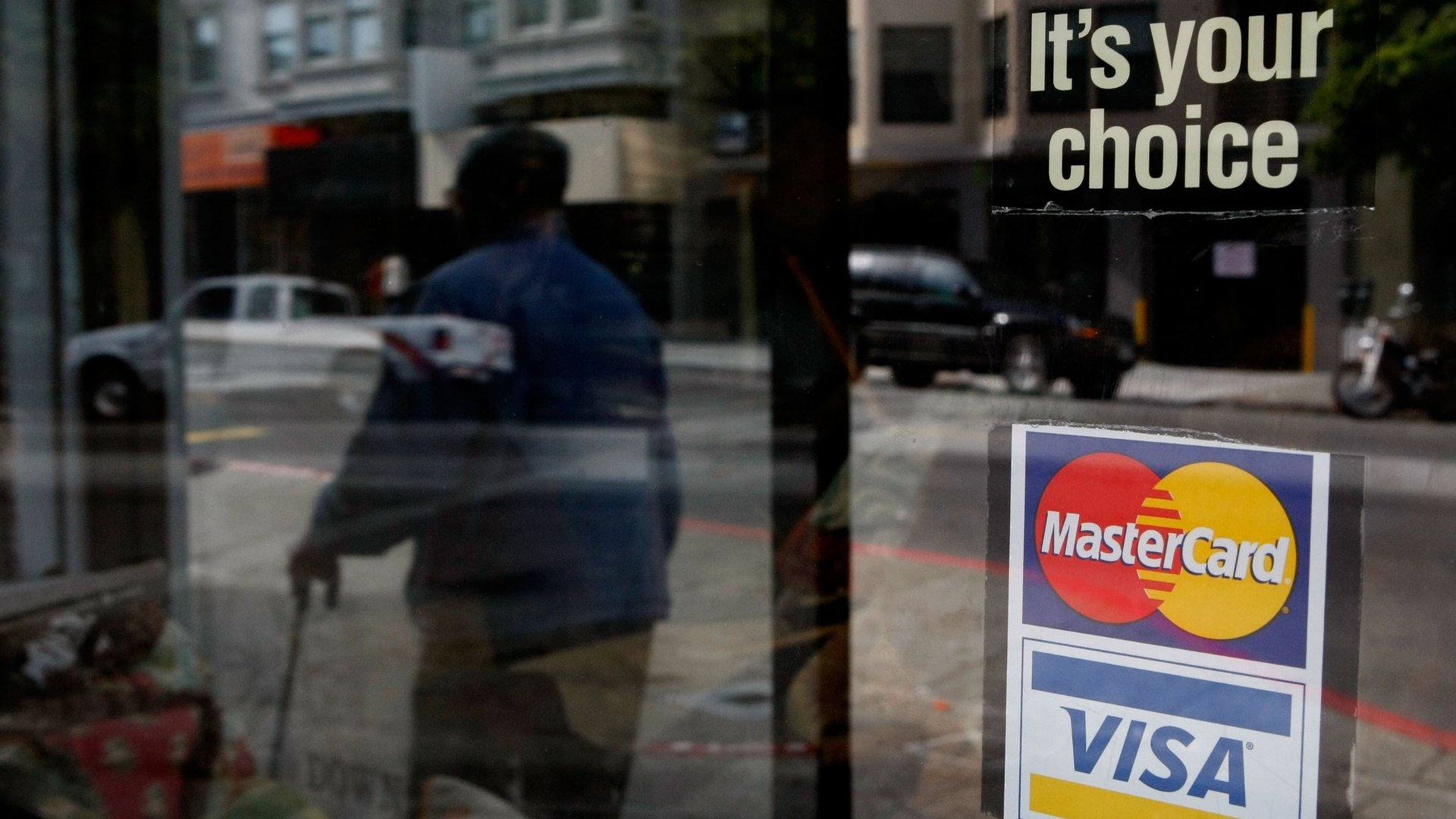Yes, credit cards are making you a bad person
The cashless society—a world where physical money is practically obsolete—has, in just a few years, gone from a utopian dream to something like an inevitability. In Sweden, a national effort is underway to take the country cashless within two decades. Throughout Africa, it’s perfectly common for merchants to accept money through mobile phones by having buyers transfer a specific amount of money to a specific number associated with the merchant.


The cashless society—a world where physical money is practically obsolete—has, in just a few years, gone from a utopian dream to something like an inevitability. In Sweden, a national effort is underway to take the country cashless within two decades. Throughout Africa, it’s perfectly common for merchants to accept money through mobile phones by having buyers transfer a specific amount of money to a specific number associated with the merchant.
In the U.S., the road to cashlessness is paved in plastic (glass, too). In the 1970s, fewer than 20 percent of the adult population owned a credit card. Today, between 70 and 80 percent of the adult population does. In some cities, being forced to pay with cash already feels like a precious anachronism (“What do you mean I have to count the money before extending my arm to the register?”).
The world of economic research has tried to keep pace with the plastic revolution, producing hundreds of reports on how MasterCard, Visa, and AmEx change our relationship to money and ourselves. The logic of credit is fairly simple. People rarely spend exactly what they earn, exactly when they earn it. With savings, we pass today’s earnings to the future. With credit, we pull expected future earnings into today.
The problem is that consumers (and perhaps Americans, in particular) aren’t so good at either. We don’t save much, and we’re awful at projecting future earnings, spending far more than we’re able to pay back quickly. Lower-income people, consumers who are worse at math, people who self-report emotional instability, introversion, or materialism, have all been found to get into trouble with credit cards. Here are some more findings from the reams of credit card research—and few of them are good.
Credit Cards Are Making You Irresponsible
The typical knock on credit cards is that they’re too effective at letting us buy stuff. Cash and coins must be considered, handled, counted, organized, re-counted, negotiated into the small space of a palm, and delivered cleanly to a merchant. Each of these verbs represents an inconvenience—a point of friction. But a card is just a card. Pull, swipe, finished. It’s so easy to spend whatever we want.
Too easy, actually. Research has shown that people who own more credit cards spend more over all; more in specific stores; more at restaurants; more on tips at restaurants … literally, there are hundreds of studies on the effect of credit cards on spending, and the vast majority of them find that, all things equal, we put more on plastic.
In 2001, two business professors from MIT organized an auction for Boston Celtics tickets where one group bid with cash and one group bid with credit. The credit card group offered nearly twice as much for the tickets. “Framing hypothetical purchases as credit card payments may significantly increase likelihood of purchase and willingness to pay,” the researchers wrote. They put their cheeky credit card advice right there in the headline: “Always Leave Home Without It.”
Credit Cards Are Making You Forgetful
The downside of counting money is that it takes time and effort. The upside is that it takes time and effort. That makes it more memorable. Cards make us forget we’re dealing with money. They create “an illusion of liquidity,” wrote Dilip Soman, a professor at the University of Colorado at Boulder, that makes consumers confuse the ability to spend money and the means to spend money. When paying with plastic, buyers have a tendency to outsource their mindfulness to the card. As a result, they were less likely to remember details about their purchases and more likely to buy additional items.
Credit Cards Are Making You Fat
The “pain” of paying with cash has a hidden benefit. It makes it harder to quickly capitulate to indulgences. Credit card “weaken impulse control,” Manoj Thomas, Kalpesh Kaushik Desai, and Satheeshkumar Seenivasan found in a 2011 paper published in the Journal of Consumer Research. “Consequently, consumers are more likely to buy unhealthy food products when they pay by credit card than when they pay in cash.” Studying the contents of shopping baskets, the three economists found that shoppers with credit cards bought a larger share of food items they had ranked as unhealthy. In this way, the permissiveness of credit cards weakens consumers’ judgment in more subtle ways than total amount spent.
Credit Cards Exacerbate Income Inequality
It’s easy to see how credit cards might allow low-income families to spend more than they earn, allowing them to live a more comfortable upper-income life. But there are a few problems with that story. First, families can’t outrun their actual earnings, and too often credit cards provide the illusion of a better life followed by the crushing reality of debt and costly penalties. More subtly, credit cards create a transfer of money from the poor to the rich by punishing non-credit-card consumers. In their paper “Who Gains and Who Loses from Credit Card Payments?” Scott Schuh, Oz Shy, and Joanna Stavins pointed out that credit cards incur merchant fees that show up in other prices. Unable to impose a surcharge penalty on credit card customers alone, merchants often raise prices for all customers. This creates higher costs for non-card-carrying (often low-income) shoppers. So, credit cards both mitigate income inequality in the short run and exacerbate it in the long run.
Derek Thompson is a senior editor at The Atlantic, where he oversees business coverage for TheAtlantic.com.